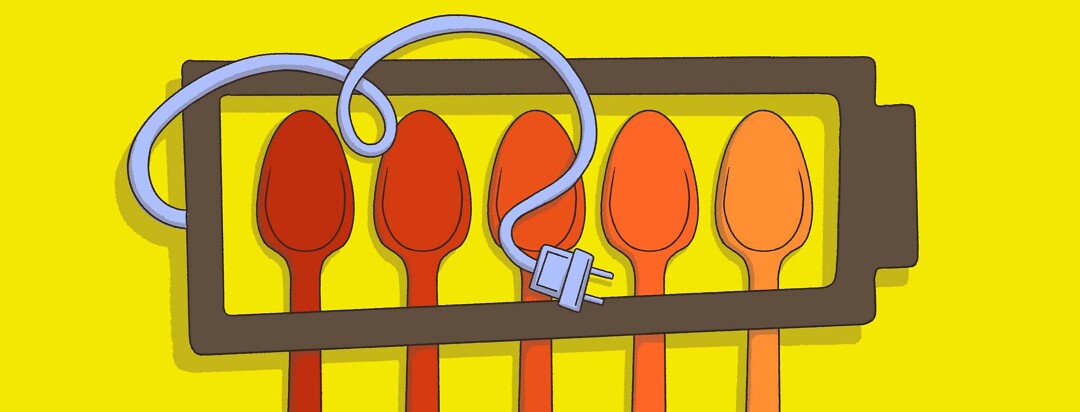Explaining IBD to Others: One Spoon at a Time
Often, I close myself off from friends and family when in a flare from ulcerative colitis. The considerate "how are you feeling?" conversations are met with my unenthusiastic one-word answers. I usually feel irked trying to describe a flare to someone who will not understand the experience from my point of view.
Perhaps they will comprehend, and I am just pessimistic. Though, explaining what it's like to be sick and subsequently being met with unsolicited comments and advice drains my energy and patience.
Unwanted comments about ulcerative colitis or Crohn's
"Don't eat spicy foods."
"You don't look sick."
"Maybe you're too stressed."
What emotions do these phrases (or similar ones) stir up in you? Fear, hope, wonder, or excitement at telling your story? My disdain for those comments stems from feeling inadequate trying to explain an all-encompassing feeling.
If only there were a way to immerse a healthy person in some virtual reality headset game featuring life with ulcerative colitis or Crohn's disease. A thrilling adventure filled with anemia, brain fog, and extended stops in the bathroom! Until that day comes in the near-futuristic future, we have spoon theory.
What is spoon theory?
Christine Miserandino developed spoon theory to answer a question from a friend who asked what it felt like to be sick and have Lupus. Like many of us, Christine expressed difficulty describing her life with a chronic illness. So, she grabbed spoons at a nearby table for a visual representation.
The spoons signify the amount of energy you have on a given day. People with chronic illnesses like UC or Crohn's only have limited spoons, whereas healthy individuals possess far greater numbers. Activities done during the day require energy and consequently take away spoons.
Brushing your teeth, that's one spoon. Bad night's sleep? Instead of starting with 20 spoons, you now only have 15 to use. Sickness takes away many luxuries that are afforded to healthy people. Individuals with chronic illnesses must learn to navigate the consequences of each choice made on a given day.
Featured Forum
View all responsesOur energy levels fluctuate with UC and Crohn's
Substituting Lupus for living with UC or Crohn's and it fits equally into the framework of spoon theory. Energy levels fluctuate dramatically among us when we are flaring and even when we are not. Food choices that trigger flares must be constantly scrutinized and sometimes even eliminated from our diets. Surgeries are taxing on physical and mental health. There may be good days followed immediately by bad ones. On the bad days, we may want to curl up into a ball and sleep, and that's ok.
It's OK you have limits
We shouldn't feel bad for prioritizing rest. Planning days ahead in detail (with wiggle room) may help conserve spoons. For example, meal prepping on a Sunday can drain that day away; however, this may lighten your load for the rest of the week.
No matter how small or insignificant, try actively finding ways to recognize limits and make time for yourself. Maybe take a deep, calming breath before answering when someone asks what it feels like to be sick. Importantly, you can now use spoon theory to help guide family and friends in understanding your unique life!

Join the conversation